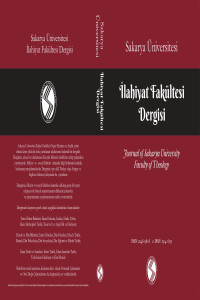Erken Çocuklukta Dijital Bağımlılıkla Mücadele Projesi Kapsamında Ebeveynlerin Çocuklarının Dijital Medya Kullanımına İlişkin Görüşlerinin İncelenmesi
Investigation of Parents' Views on Their Children's Digital Media Use Within the Scope of the Project on Combating Digital Addiction in Early Childhood
Author(s): Hatice Ayar, Nurgül Bulut, Zehra GeliciSubject(s): Media studies, Family and social welfare, ICT Information and Communications Technologies
Published by: Sakarya üniversitesi
Keywords: Religious Education; Early Childhood Education; Digital Addiction; Digital Parenting; Digital Media;
Summary/Abstract: New media/digital media, which started to replace traditional media with the widespread use of internet access, are used by individuals of all ages. In traditional media, while the individual is a passive receiver of the information given in the digital environment, he takes an active role in producing content, following the produced content and interacting with the new media. Those who adapt the fastest to developing technology are undoubtedly children and young people who are born into a technology-based world, are exposed to smart devices from a very young age, and can easily interact with digital media. The widespread use of digital media devices such as computers, tablets and smartphones, and the fact that the internet is accessible everywhere, in addition to fixed places such as home, school, and workplace, has started a new era for children and parents. In this new era, which is called the digital world, parents have great duties to protect children, who constitute the largest risk group. This research includes the academic outputs of the Children's Course, Parents Seminar project in Combating Digital Addiction in Early Childhood, which was accepted by the Presidency of Religious Affairs. The study discusses the concept of digital addiction and the limits of the relationship between children, digital media and parents in the face of the harmful effects of the digital age. In this context, the research aims to determine the duration of digital media use by preschool children, its content and the reasons that lead children to digital media devices, and to reveal the effects of digital media use on children and parents. In addition, the evaluations of the parents who participated in the seminars on Combating Digital Addiction in Early Childhood, organized within the scope of the project, and its reflection on the child-parent relationship in the use of digital media are examined. The case study design was applied in the research in which the qualitative method was used. Parents of students attending Qur’ān courses in the 4-6 age group in … District of … were informed about the project, and 980 parents were reached. 168 parents filled in the Digital Addiction Detection Form to determine how long their children spent on the Internet, which was sent to them. Semi-structured interviews were conducted with 8 parents among the parents who filled out the the form, whose children were exposed to digital devices for 3 hours or more per day and approved to be interviewed, and a seminar program was created by evaluating the data obtained. 10 seminars lasting 5 weeks were organized for volunteer parents who wanted to participate in the project. The seminars covered the topics of parents getting to know their children, recognizing their digital addictions, setting limits for their children, and digital literacy. 93 parents benefited from the seminars, and at the end of the seminar, a 90- minute focus group discussion was held with 15 volunteers from among the parents whose children were exposed to digital devices for 2 hours or more, who fully attended all the seminars. The audio recordings obtained were written down, and content analysis was made.
Journal: Sakarya Üniversitesi İlahiyat Fakültesi Dergisi (SAUIFD)
- Issue Year: 25/2023
- Issue No: 47
- Page Range: 1-33
- Page Count: 33
- Language: Turkish

